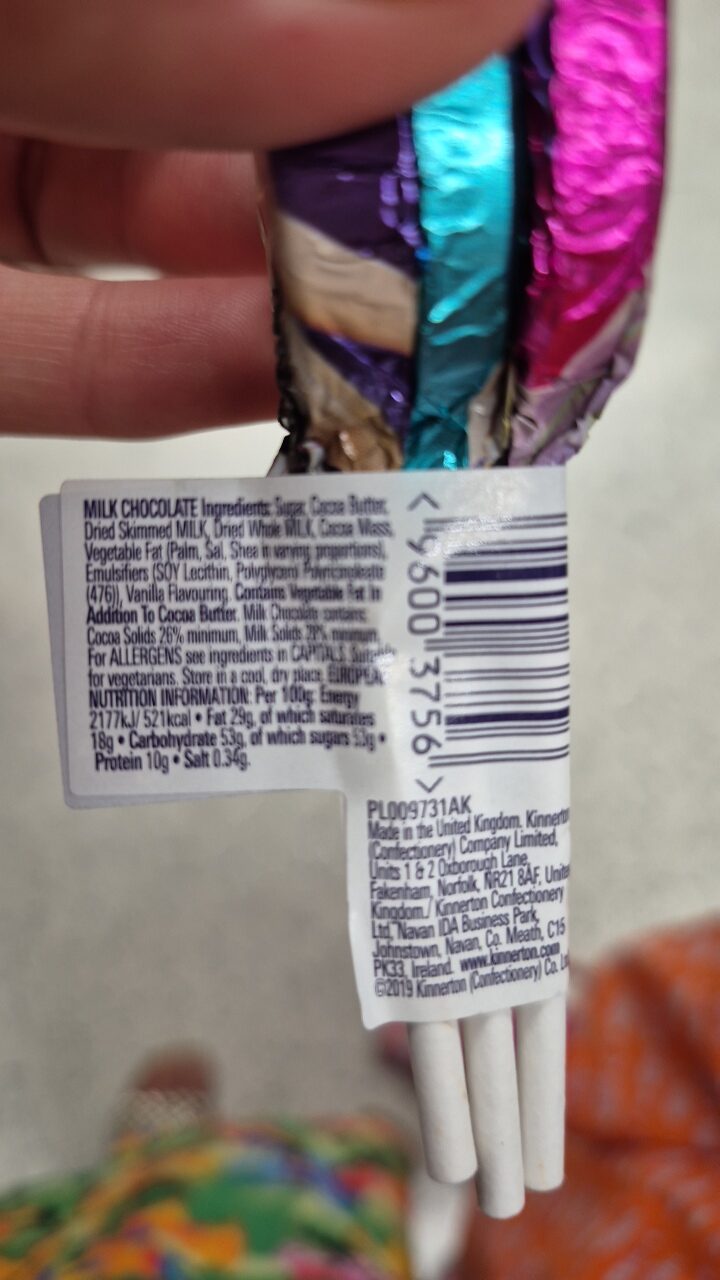
Barcode: 96003756
MILK CHOCOLATE
HALAL
📝 Reason: Most ingredients in this milk chocolate are Halal, except for emulsifiers and vanilla flavouring, which may be from animal or alcohol sources. Without explicit Halal certification or clear origin labeling, their status is Doubtful (2) per Islamic dietary rules and must be avoided by strict consumers (Quran 5:3, IFANCA guidance).
🏷️ Category: Chocolate, Confectionery
📄 Certificates: Vegetarisch
Ingredients:
Details
Is MILK CHOCOLATE Halal?
When it comes to enjoying sweet treats like milk chocolate, many consumers want to ensure that the products they consume adhere to their dietary guidelines, especially in terms of Halal status. In this article, we will explore the Halal status of MILK CHOCOLATE, focusing on its ingredients, E-numbers, and any potential concerns surrounding their compliance with Halal dietary rules.
Understanding Halal Status
The term “Halal” refers to items permissible under Islamic law. MILK CHOCOLATE, in this context, is labeled as Halal, meaning the primary ingredients comply with Islamic dietary laws. However, we need to highlight specific components that may raise questions.
Ingredients Breakdown
The ingredients for MILK CHOCOLATE include:
sugar, cocoa butter, dried skimmed milk, dried whole milk, cocoa mass, vegetable fat, emulsifiers, vanilla flavouring, cocoa solids, milk solids, and salt.
Key Ingredients and Their Halal Status
- Sugar: Generally, sugar is Halal unless processed with non-Halal bone char; however, commercial sugars are usually Halal. Source
- Cocoa Butter: Derived from cocoa beans, cocoa butter is plant-based and deemed Halal unless contaminated. Source
- Dried Skimmed Milk: Halal as it comes from cows, which remain permissible as per Islamic law. Source
- Dried Whole Milk: Similar to skimmed milk, provided it contains no Haram additives. Source
- Cocoa Mass: This ingredient is pure cocoa solids and is Halal by nature. Source
- Vegetable Fat: Generally Halal unless sourced from questionable supplies, which is uncommon. Source
- Emulsifiers: The status of emulsifiers can vary as they might derive from animal or plant sources. Their Halal status remains doubtful without explicit certification. Source
- Vanilla Flavouring: Depending on its source, vanilla flavouring may involve alcohol; thus, its Halal status is doubtful unless marked as alcohol-free or certified. Source
- Cocoa Solids: As a plant-based component, cocoa solids are deemed Halal and safe for consumption. Source
- Milk Solids: From cow’s milk, these remain Halal when free from Haram additives. Source
- Salt: Salt is naturally Halal as it does not derive from animal sources. Source
Conclusion
The Halal status of MILK CHOCOLATE primarily stands firm with most ingredients being permissible based on general Islamic dietary guidelines. However, individuals who strictly adhere to Halal practices should approach emulsifiers and vanilla flavouring with caution, as their origins may vary significantly. Without explicit Halal certification for these ingredients, consumers are advised to seek products that clearly label their compliance with Halal standards.
In summary, while many enjoy the sweetness of MILK CHOCOLATE without concern, the wisest choice is to always check the ingredient label and certification, ensuring your dietary choices align with your values.
